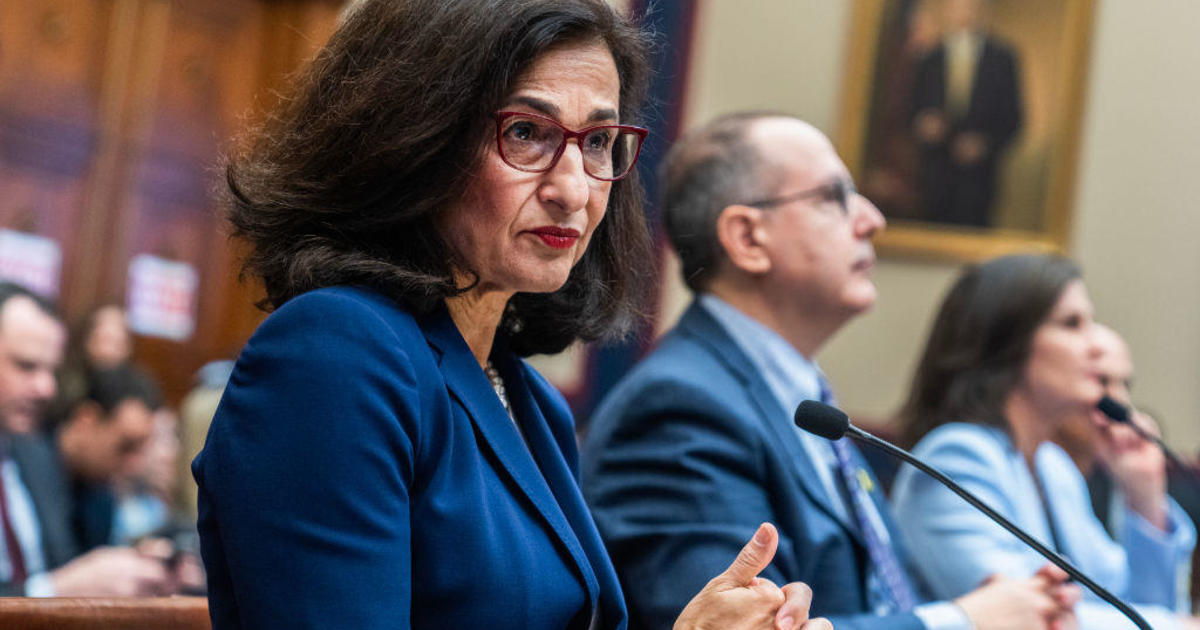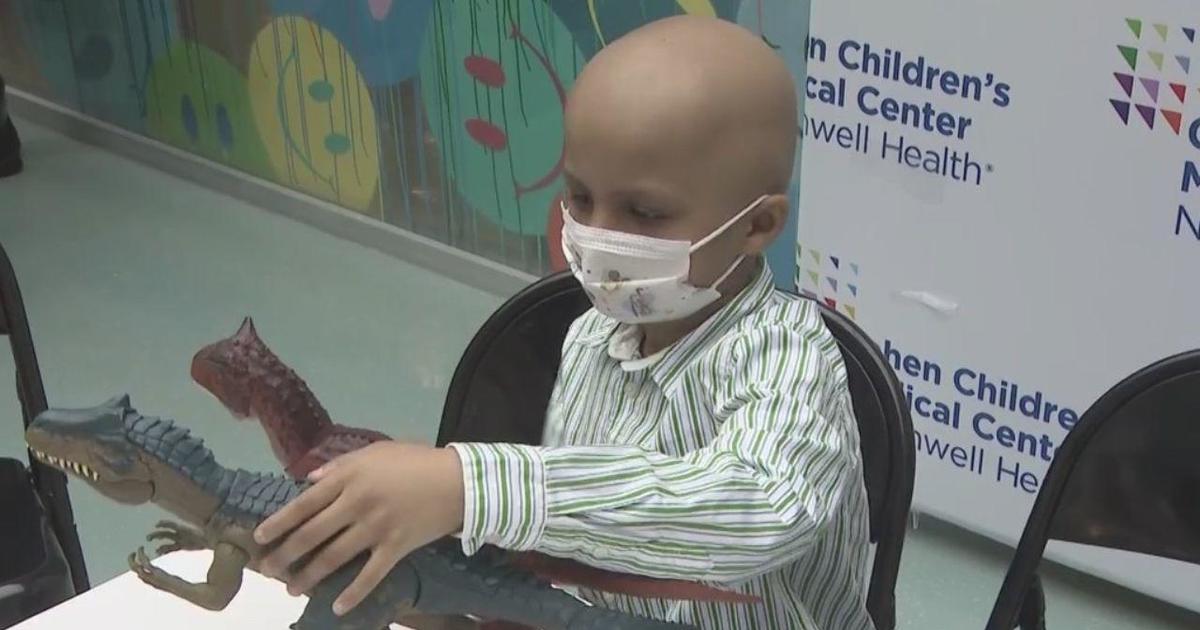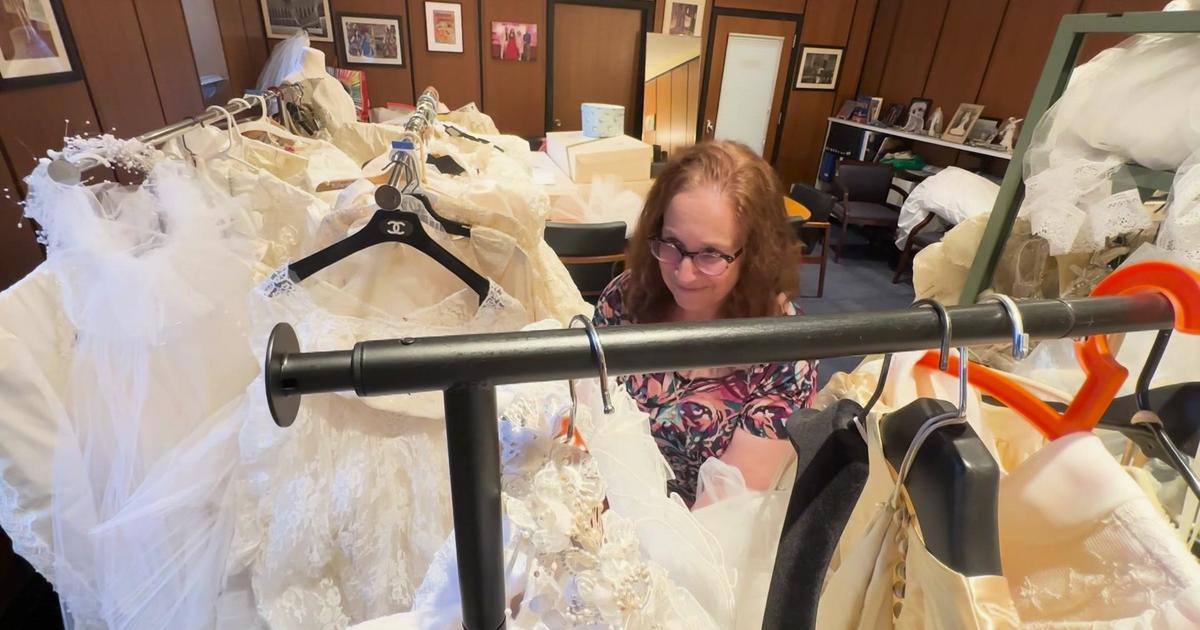Women Have New Options For Breast Cancer Surgery
NEW YORK (CBSNewYork/AP) -- One of the world's most glamorous women had an operation that once was terribly disfiguring -- the removal of both breasts. But new approaches are dramatically changing breast surgeries and whether to treat cancer or to prevent it.
Angelina Jolie revealed Tuesday she had a preventive double mastectomy because she carries the "faulty" BRCA1 gene and had an 87 percent chance of getting breast cancer.
Jolie, 37, wrote in an op-ed in The New York Times that she revealed her story in order to help other women at risk for cancer.
Women Have New Options For Breast Cancer Surgery
"I wanted to write this to tell other women that the decision to have a mastectomy was not easy. But it is one I am very happy that I made,'' Jolie wrote.
Only a small percentage of women inherit this same faulty gene, or a similar mutated version of a related gene, BRCA2. Women who have inherited a faulty BRCA gene are about five times more likely to get breast cancer.
"In people who have the mutation, it actually raises the risk of developing both breast cancer and ovarian cancer," said CBS News' Dr. Holly Phillips.
WATCH: Q&A With CBS 2's Dr. Gomez
By comparison, the average woman has a 12 percent risk of developing breast cancer sometime during her life.
"These are very rare genes and I think it's important to make the distinction that most breast cancer is not gene-associated and even women who have a family history of breast cancer, most do not have this gene," Dr. Elisa Port, the chief of breast surgery at Mt. Sinai Medical Center, said.
In the U.S., about 5 to 10 percent of breast cancers are thought to be linked to harmful BRCA genes. Women with these faulty genes may also have a 15 to 40 percent risk of developing ovarian cancer, compared to about a 1.4 lifetime risk for women without such mutations.
Other Women Who Have Elected To Undergo Surgery
As CBS 2's Hazel Sanchez reported Tuesday night, Sharice Torres never thought she would say Jolie's life is much like her own, but Torres herself decided to undergo a double mastectomy when she found out she had the BRCA mutation.
"I can't lead my life always looking over my shoulder, if and when the cancer might come," she said. "With my genetic makeup, it was more when."
Torres' mother is a three-time breast cancer survivor. Though Torres could have chosen routine breast exams over surgery, she said she felt a double mastectomy was her best option.
Torres said the decision was the best for her family.
"I did it so my children would have a mother when they grew up," she said. "I did it so my husband would have a wife."
Miss America contestant Allyn Rose had the same surgery after learning she had a gene mutation that lead to the breast cancer that claimed her mother's life. Her father encouraged her to take action.
"He said, 'I want you to be alive. Let's do this,'" Rose said.
And at 27, Lizzie Stark was supposed to be at the start of her prime as a published author and a newlywed when she found out she carried the gene.
"To me, I'm thinking, 'Is this going to be the moment when my life changes forever? Is this going to be the moment when I'm diagnosed with breast cancer?'" Stark told CBS 2's Janelle Burrell.
Stark's mother and grandmother were both diagnosed with breast cancer in their 30s. When she was screened for the BCRA gene mutation, her test came back positive – meaning she also had an 87 percent chance of developing cancer as well.
"There was no way I could continue living the way I was living after I found out my test results," she said.
So like Jolie, Stark decided to have both her breasts removed. It was no easy decision – not just for Stark's health, but for her quality of life.
"Of course, I was nervous [if I] would still be attractive after this surgery; that I feel desired by my husband," she said.
But for her husband, George Locke, the decision was simple.
"I wanted my wife," Locke said. "I wanted her to be alive."
It has been three years since Stark's surgery, and although it has been an emotional journey, she and Locke said they have no regrets.
"It was definitely the right decision," Stark said. "I couldn't live with the fear and anxiety of knowing that I had such a high chance of developing breast cancer."
Suzanne Shapiro and her sister were also tested for the BRCA gene after their mother died of ovarian cancer and they both tested positive.
"We were both shocked," Shapiro of Westport, Conn., told WCBS 880's Peter Haskell.
They both decided to have their ovaries removed as a precaution.
"I couldn't imagine not doing anything. Once you know that your lifetime risk is 85 percent it's just, it's so daunting," Shapiro told Haskell.
Women Have New Options For Breast Cancer Surgery
Last year, Shapiro opted for a double mastectomy because she said it seemed logical.
"But emotionally, yeah, it's definitely a difficult decision," Shapiro told Haskell.
The 44-year-old said she has no regrets. Her sister is still considering the surgery.
Sharon Stanley, 55, of Westbury, N.Y., said she tested positive for the BRCA gene 10 years ago and also had her breasts and ovaries preventatively removed.
"I didn't know anyone who had done this," she told 1010 WINS' Mona Rivera. "I knew I had done the right thing, but really I was struggling with it."
Stanley said she understands why Jolie made the same decision to have a double mastectomy.
"It's amazing to never have to worry about breast cancer again," she said.
Jolie said with the surgery, her chances of developing breast cancer dropped to less than 5 percent.
"I can tell my children that they don't need to fear they will lose me to breast cancer," she wrote.
Hillary Rutter, executive director of the Adelphi NY Statewide Breast Cancer Hotline & Support Program, said Jolie's decision to talk openly about her surgery will help raise awareness about breast cancer.
"She was brave to not only do what she needed to do but also to talk about it publicly so that other women can talk about it," she said.
Breast cancer is the most common cancer in women around the world. In the U.S. alone, about 230,000 new cases are diagnosed each year.
For women who already have the disease, the choice used to be whether to have the lump or the whole breast removed. Now there are more options that allow faster treatment, smaller scars, fewer long-term side effects and better cosmetic results.
It has led to a new specialty -- "oncoplastic'' surgery -- combining oncology, which focuses on cancer treatment and plastic surgery to restore appearance.
More women are getting chemotherapy or hormone therapy before surgery to shrink large tumors enough to let them have a breast-conserving operation instead of a mastectomy. Fewer lymph nodes are being removed to check for cancer's spread, sparing women painful arm swelling for years afterward.
Newer ways to rebuild breasts have made mastectomy a more appealing option for some women. More of them are getting immediate reconstruction with an implant at the same time the cancer is removed rather than several operations that have been standard for many years. Skin and nipples increasingly are being preserved for more natural results.
"There have been many advances in this procedure in the last few years, and the results can be beautiful," Jolie wrote.
Some doctors are experimenting with operating on breast tumors through incisions in the armpit to avoid breast scars. Doctors are also testing a way to avoid surgery altogether, destroying small tumors by freezing them with a probe through the skin.
"Breast surgery has become more minimalistic,'' said Dr. Shawna Willey of Georgetown's Lombardi Comprehensive Cancer Center.
Most cases can be treated by just having the lump removed, but that requires radiation for weeks afterward to kill any stray cancer cells in the breast, plus frequent mammograms to watch for a recurrence.
Many women don't want the worry or the radiation and choose mastectomy even though they could have less drastic surgery.
As for cost, the gene test costs about $3,000. The test and mastectomies are usually covered by insurance.
Check Out These Other Stories From CBSNewYork.com:
(TM and © Copyright 2013 CBS Radio Inc. and its relevant subsidiaries. CBS RADIO and EYE Logo TM and Copyright 2013 CBS Broadcasting Inc. Used under license. All Rights Reserved. This material may not be published, broadcast, rewritten, or redistributed. The Associated Press contributed to this report.)



